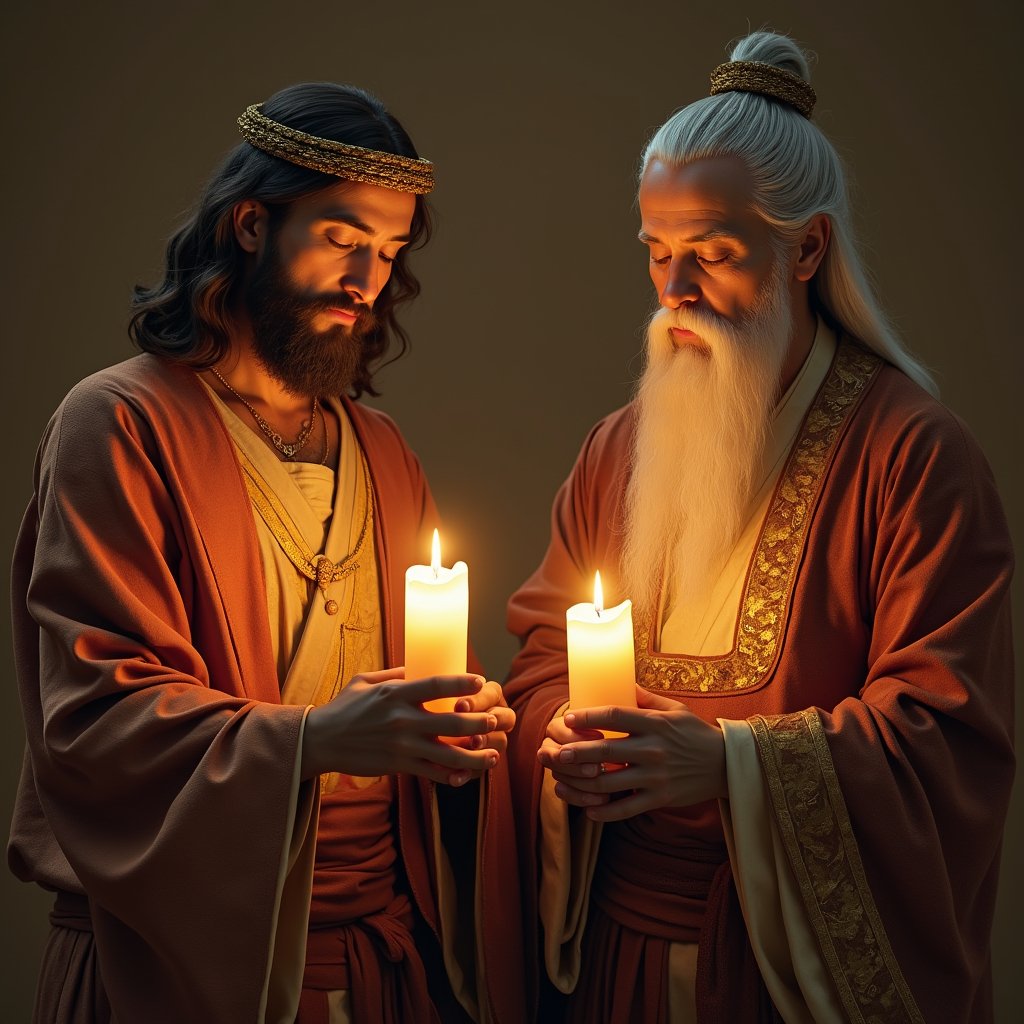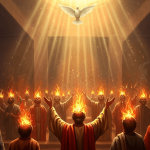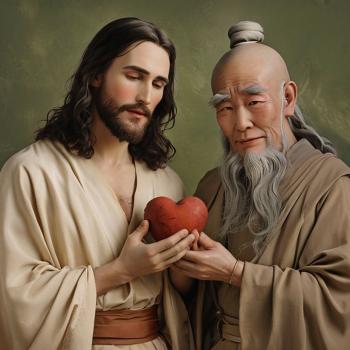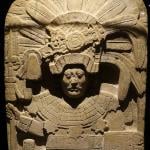Jesus said to let your light shine—but that doesn’t mean outshining others. Lao Tzu suggests using the dimmer switch. Where’s the balance?

Dimming your own light doesn’t mean putting your candle under a bushel. It means being just bright enough, but not so much that you keep others from glowing as well. Taoist and Christian sages agree that balance is the key.
Lao Tzu’s Tao Te Ching, Verse 24
J.H. McDonald Version
Those who stand on tiptoes
do not stand firmly.
Those who rush ahead
don’t get very far.
Those who try to outshine others
dim their own light.
Those who call themselves righteous
can’t know how wrong they are.
Those who boast of their accomplishments
diminish the things they have done.
Compared to the Tao, these actions are unworthy.
If we are to follow the Tao,
we must not do these things.
Wu Wei
There’s a lot to be said for doing all things with intentionality. There’s even more to be said for becoming so engaged that you no longer have to be intentional. Suddenly, you find that you are doing something without it seeming like you are doing anything. Like, when you’re driving your car and you suddenly say, “Hey, how did I get this far already?” You were doing without doing. In fact, you were doing it so well that you didn’t even have to think about it. Then, when you arrived, you didn’t even remember doing anything.
This is the Taoist concept of wei wu wei (doing without doing), or just wu wei (Non-doing or non-action). Wu wei is a Taoist virtue that happens when your actions are performed with complete sincerity and integrity. Lao Tzu writes, “Those who stand on tiptoes do not stand firmly. Those who rush ahead don’t get very far.” Neither being too cautious nor overly reckless, the person who practices wu wei moves casually, easily, and free of concern. No one likes to feel like walking on tiptoes around a loved one. Neither do they want to feel rushed and controlled by others. When you follow the Tao of Christ, you walk as he did— at a good pace, set by the spirit.
Outshining Others
Lao Tzu continues, “Those who try to outshine others dim their own light. Those who call themselves righteous can’t know how wrong they are. Those who boast of their accomplishments diminish the things they have done.” This reminds the reader that Jesus’s greatest criticisms are not for those who walk in simple trust. Instead, he reserves his harshest condemnation for those who oppress others with their strict laws, while glorying in their own self-righteousness.
Jesus’s Rebuke
In the Gospel of Matthew, Jesus not only rebukes the religious leaders but also advises people not to follow their pattern of behavior:
So practice and obey whatever they tell you, but don’t follow their example. For they don’t practice what they teach. They crush people with unbearable religious demands and never lift a finger to ease the burden.
“Everything they do is for show. On their arms they wear extra wide prayer boxes with Scripture verses inside, and they wear robes with extra long tassels. And they love to sit at the head table at banquets and in the seats of honor in the synagogues. They love to receive respectful greetings as they walk in the marketplaces, and to be called ‘Rabbi.’
“Don’t let anyone call you ‘Rabbi,’ for you have only one teacher, and all of you are equal as brothers and sisters. And don’t address anyone here on earth as ‘Father,’ for only God in heaven is your Father. And don’t let anyone call you ‘Teacher,’ for you have only one teacher, the Messiah. The greatest among you must be a servant. But those who exalt themselves will be humbled, and those who humble themselves will be exalted.
A Spotlight for Others
Jesus knows that those who try to outshine others only succeed in dimming their own light. This is why he encourages his followers to walk in humility. Instead of calling attention to themselves, followers of The Way shine a spotlight for others to follow. Imagine walking a path at night, along with a guide to help you on the way. Is it better for your guide to shine the light on themselves, or for them to illuminate the path before you? Those who follow the Way of Love become so focused on illuminating the path that nobody even sees them.
Letting Go
Lao Tzu says, “Compared to the Tao, these actions are unworthy. If we are to follow the Tao, we must not do these things.” Steven Mitchell’s version renders this as, “If you want to accord with the Tao, just do your job, then let go.” Letting go means trusting. You are responsible only for walking. God is responsible for the ground beneath your feet. When you practice The Way of Love, you not only arrive on the best path, but you shine a light so others can find their footing as well.
Pray…
Great Way, I confess that sometimes I lose my way. I get impatient. I rush ahead. Instead of trusting, I strain too hard and try too much. Help me to know that the ground beneath my feet is steady, so that as I put one foot in front of another, I might reach my destination in due time and without any effort.
Great Light, remind me that you are the Light of the World. Any light I have derives from you. Help me to shine my light, but not so brightly that it dims the brilliance of others. May I never draw so much attention to myself that I cause others to stop trying to shine. Instead, let me be the candle that ignites the wicks of others, so they might glow all the brighter. Amen.
For related reading, check out my other articles:
- How are Jesus & Lao Tzu Like Peanut Butter Cups?
- Jesus and Lao Tzu Practice Do-Nothing Leadership
- Jesus & Lao Tzu’s Judgement-Free Zone














